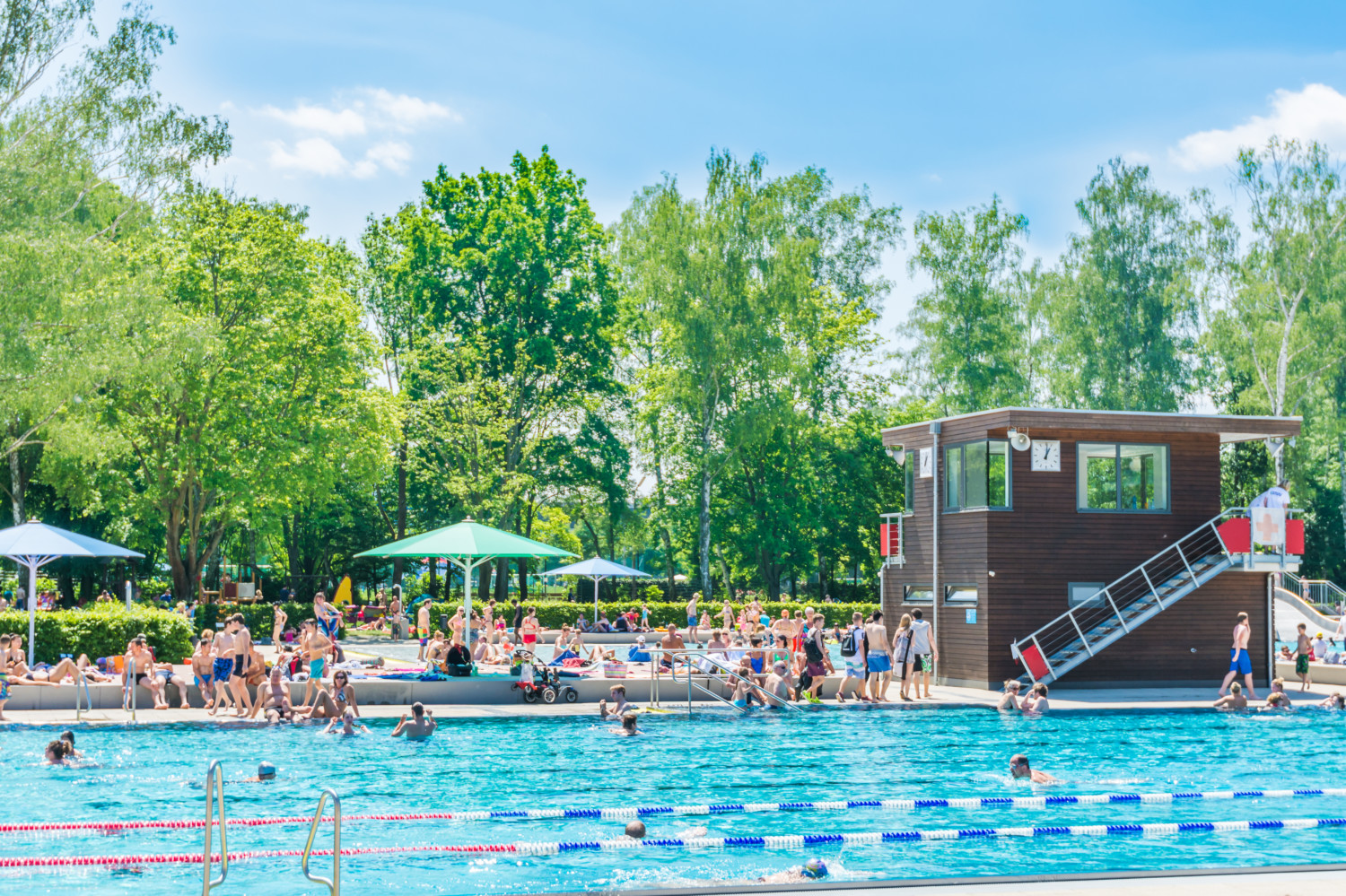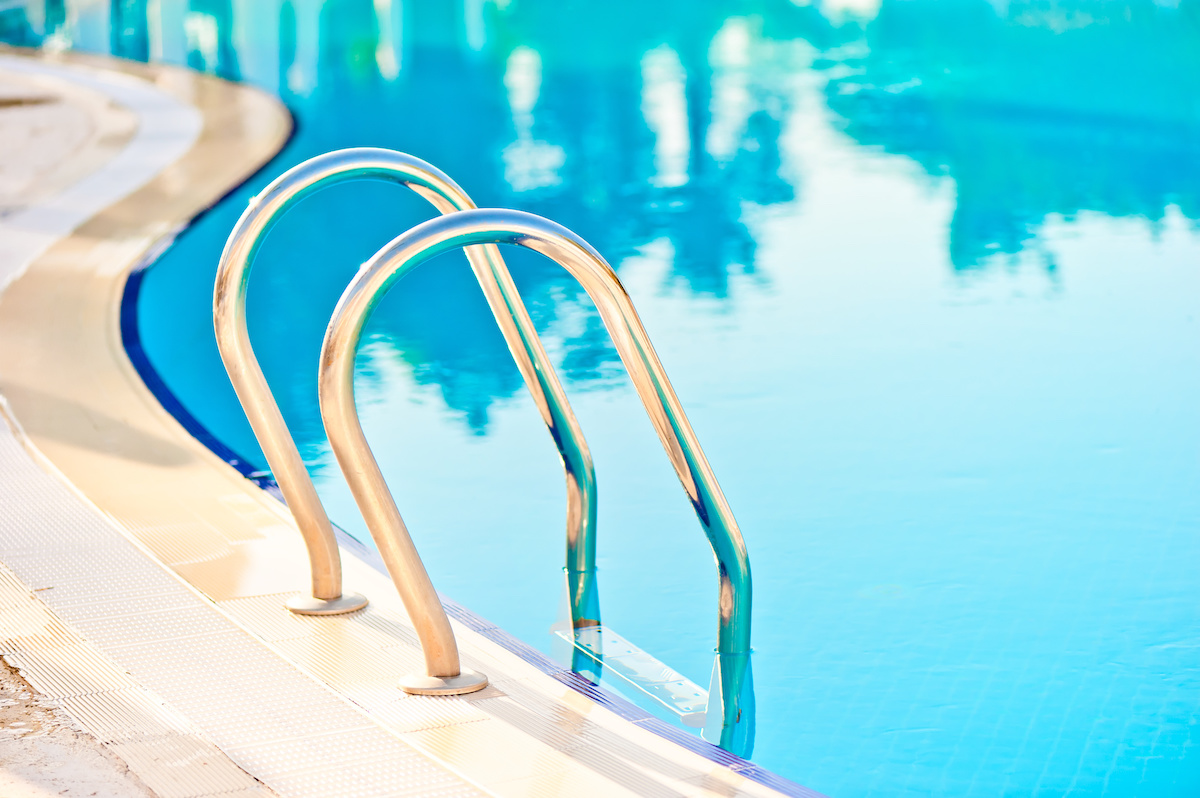While many pools and waterparks are shut down entirely this summer because of COVID-19, others remain open — but with some rules in place that make pool days amid a pandemic a little different. Face masks may be required in common areas. Lounge chairs are spaced out to observe social distancing protocols. Reservations for two-hour time slots are needed to avoid overcrowding.
But, with coronavirus still a serious global health threat, you may have wondered: “Is it even safe to go swimming at the pool this summer?”
Experts say the pool water itself doesn’t pose a risk for spreading the virus. But coming in too close contact with other pool-goers, say, in the locker room or crowding a small hot tub, is where the risk comes into play. Health officials believe COVID-19 is spread mainly from person-to-person contact and via respiratory droplets when a person sneezes, coughs or talks.
Here’s what else you need to know if you’re considering getting a few more pool days in before they begin shutting down for the season over Labor Day weekend.

Can COVID-19 Spread In Water?
According to the Centers for Disease Control and Prevention, there’s currently no evidence that COVID-19 can spread to people through water.
“There’s nothing inherent about ocean water or especially pool water that is risky. The bug isn’t transmitted via a waterborne route,” Dr. Ebb Lautenbach, chief of infectious diseases at the University of Pennsylvania’s Perelman School of Medicine, told The New York Times..
Also, disinfectants used to clean water at pools, like chlorine and bromine, can kill the virus that causes COVID-19, according to Dr. Laura Waters with Mercy Clinic Pediatrics – HealthTracks in Springfield, Missouri.
How To Be Safe At The Pool Amid COVID-19
When you’re near the pool and congregating on the deck or common area, it’s important to practice social distancing and masking, experts say. But, take your masks off before getting the water.
“As soon as they get wet, your children can’t breathe through them,” Dr. Waters cautions in a statement.
The CDC also recommends limiting close contact with people outside of your household when you’re visiting public pools, hot tubs and water playgrounds, as well as natural bodies of water like the ocean or lakes.
Do not share items, like goggles, pool toys, food or towels.
Dr. Sorana Segal-Maurer, M.D., director of infectious diseases at NewYork-Presbyterian Hospital Queens, told Self in an interview, “You should never share towels, ever. Towels are nice and moist and warm, which is very conducive to the growth of all sorts of organisms.”

Considerations For Public Spaces
The CDC has recommended that gyms, cities, water parks, homeowner’s associations and apartment complexes consult with local health agencies to determine whether to open pools this summer. For those that have opened, the CDC has put forth guidelines to help limit the spread of COVID-19.
The protocols include frequent cleaning of handrails, slides, play structures, lounge chairs, door handles and other surfaces. along with changing the pool deck layouts so that seat areas are spaced out and pool-goers can remain six feet away from one another. The CDC also recommends having enough equipment on hand to discourage people from sharing items such as kickboards and floats.
What changes have you noticed at your local pools this summer?
This story originally appeared on Simplemost. Checkout Simplemost for additional stories.



